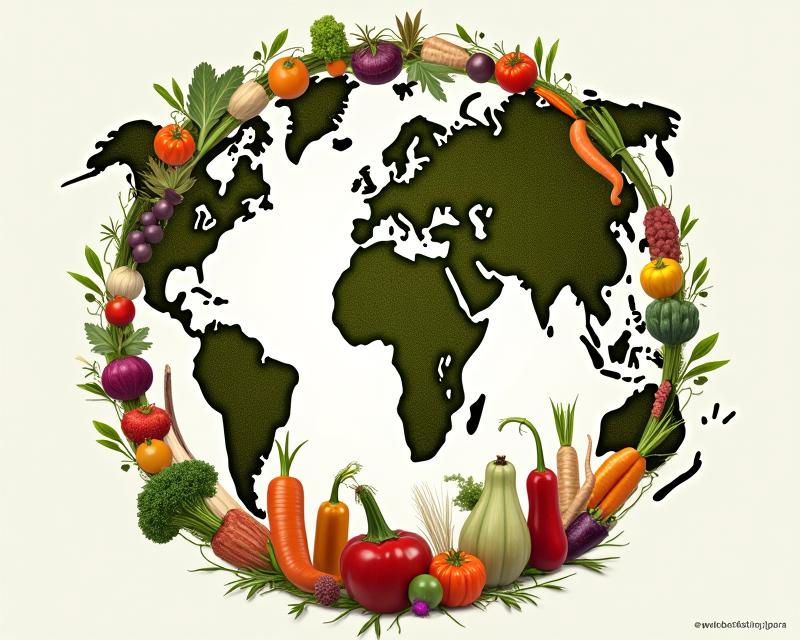Vegetables & Culture: A Global Harvest
Publish in Agriculture el 21/07/2025 20:34
Vegetables & Culture: A Global Harvest
Hello fellow farmers and gardeners! We often focus on yields, soil health, and market prices, but have you ever considered the deeper cultural significance of the vegetables we grow? Across the globe, vegetables aren't just food; they're woven into the fabric of societies, playing vital roles in rituals, medicine, and, of course, cuisine. Understanding these connections can offer a fascinating perspective on the history and traditions surrounding food – and perhaps even inspire new ideas for your own farm or garden.

Ancient Roots & Rituals
Many vegetables hold deep historical and spiritual importance. Consider the humble potato, a staple in Ireland, deeply intertwined with national identity and folklore. In ancient Mesoamerica, corn (maize), beans, and squash formed the 'Three Sisters,' a symbiotic planting system central to Aztec and Mayan cultures, representing sustenance, growth, and community. These weren't just crops; they were sacred gifts. Vegetables have been used in countless rituals worldwide, from offerings to deities to symbolic representations of fertility and abundance. Certain vegetables are believed to possess protective powers, warding off evil spirits or promoting good health. Exploring these traditions can provide a rich understanding of how food shapes cultural beliefs.
Vegetables in Traditional Medicine
Beyond sustenance, vegetables have long been valued for their medicinal properties. Traditional medicine systems, like Ayurveda in India and Traditional Chinese Medicine, utilize a wide array of vegetables for healing. Specific vegetables are believed to balance the body's energies, boost immunity, and treat various ailments. For example, ginger is renowned for its anti-inflammatory properties, while turmeric is celebrated for its antioxidant benefits. Even in modern medicine, research continues to uncover the health benefits of many vegetables, validating practices that have been passed down through generations. As farmers, understanding these traditional uses can broaden your appreciation for the potential of the crops you cultivate.
Culinary Traditions Around the World
Perhaps the most readily apparent cultural impact of vegetables is in cuisine. Each region boasts unique ways of preparing and incorporating vegetables into their dishes. Think of the vibrant curries of India, heavily reliant on lentils, spinach, and eggplant; the Mediterranean diet, rich in tomatoes, zucchini, and peppers; or the hearty stews of Eastern Europe, featuring cabbage, potatoes, and carrots. These culinary traditions aren't simply about taste; they're about history, geography, and cultural identity. By learning about these diverse culinary practices, you can gain a deeper appreciation for the versatility of vegetables and find inspiration for new recipes and ways to showcase your harvest. Consider how heirloom varieties, passed down through generations, contribute to these unique culinary landscapes. It's a beautiful reminder that food connects us to our past and to each other.
So, the next time you're harvesting your crops, take a moment to consider the rich cultural history behind each vegetable. It's a fascinating journey that connects us to the past and enriches our understanding of the present. Happy farming!





